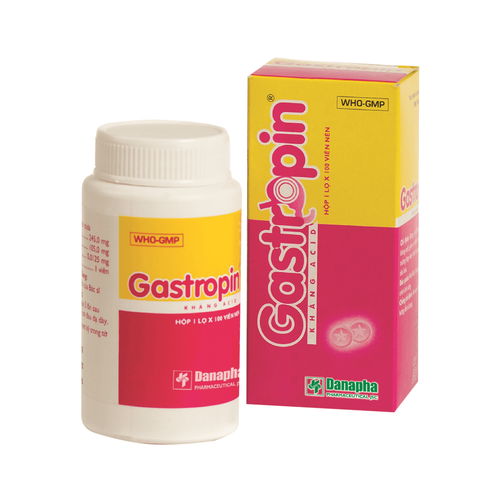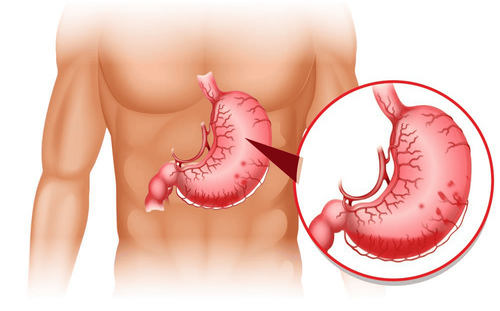This is an automatically translated article.
Regular use of certain pain relievers and drinking too much alcohol can also contribute to stomach pain. Regardless of the cause, treatment with an upset stomach is always necessary to improve symptoms. However, for the treatment to be highly effective, the patient needs to know the instructions for using stomach pain relievers according to each group.1. Antacids (antacids)
Antacids are drugs that neutralize stomach acid to relieve heartburn, stomach pain, indigestion caused by excess acid. Some antacids also contain simethicone, an ingredient that helps your body relieve symptoms of bloating. Examples of antacids include: Alka-Seltzer, Magnesia, Alternagel, Amphojel, Gelusil, Maalox, Mylanta, Rolaids, Pepto-Bismol...
You should take your antacid exactly as directed by your doctor or as package label. If you take the pill form, chew them well before swallowing for faster pain relief. Absolutely do not overdose or abuse antacids because they can cause side effects of the drug including constipation, diarrhea due to bowel disorders and stomach cramps. Also, do not take antacids if you have chronic kidney disease.
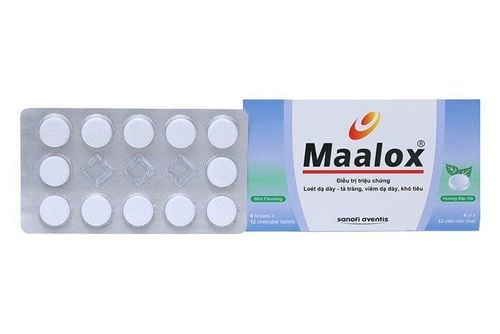
Thuốc kháng axit (antacids): Maalox
2. Proton pump inhibitors (PPIs)
Proton pump inhibitors (PPIs) are used to prevent heartburn, when it occurs frequently, usually more than 2 times a week. Acid blockers work by blocking acid-producing sites in the parietal cells of the stomach. Proton pump inhibitors currently in use include: omeprazole (Prilosec, Prilosec OTC, Zegerid), lansoprazole (Prevacid), pantoprazole (Protonix), rabeprazole (Aciphex), esomeprazole (Nexium), dexlansoprazole (Dexilant).
To be most effective, you need to take a proton pump inhibitor once a day on an empty stomach. Typically, you'll take your pill every morning, 30-60 minutes before breakfast, to control stomach acid for the day.
Side effects of proton pump inhibitors are rare, such as diarrhea, headache, nausea and vomiting, and abdominal pain. In addition, the drug can also increase the chance of getting an intestinal or lung infection, increasing the risk of fractures of the thigh, wrist, and spine. The highest risk lies in those taking the drug for a year or more.
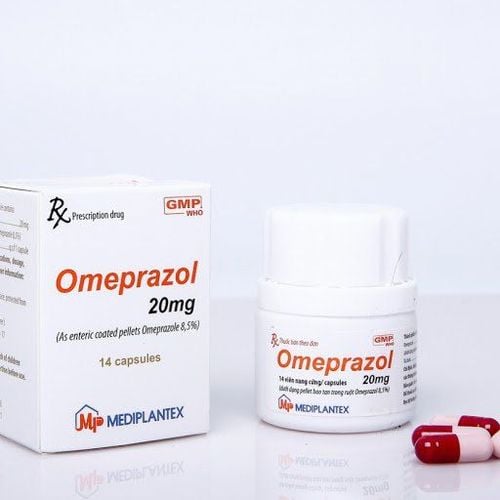
Thuốc omeprazole ngăn ngừa chứng ợ nóng
3. H2 . receptor blockers
H2 receptor blockers are a class of drugs that can be used to treat conditions that cause excess acid in the stomach. While they don't work as quickly as antacids, their effects last longer. Common drugs in this class include nizatidine (Axid), famotidine (Pepcid, Pepcid AC), cimetidine (Tagamet, Tagamet HB), and ranitidine (Zantac).
H2 receptor blockers are most commonly used to treat stomach pain caused by gastritis or even peptic ulcers. In addition, H2-receptor blockers are also used to relieve symptoms of gastroesophageal reflux disease with symptoms of esophageal irritation such as heartburn, nausea, or difficulty swallowing.
Your doctor may prescribe antacids and H2 blockers together for a short period of time to effectively relieve stomach upsets. At the same time, you should take the drug before the first meal of the day. In some cases, you can also take it before dinner because it takes 30 to 90 minutes for these drugs to work. However, the benefits will last several hours or symptoms may improve up to 24 hours after taking the drug.
The most common side effects of H2 blockers are mild such as constipation, diarrhea, headache, and nausea or vomiting.
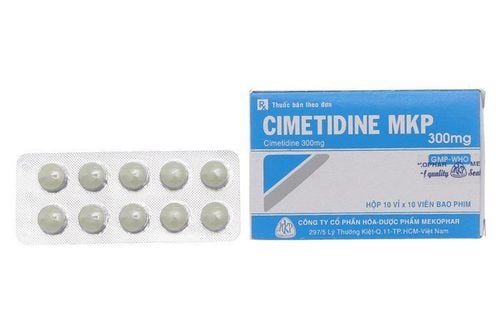
Cimetidine - thuốc ức chế thụ thể H2
4. Other stomach pain relievers
4.1. Sucralfate Sucralfate is used to treat and prevent ulcers in the intestines by forming a coating over the ulcer, protecting the stomach lining from further damage. This will help the ulcer heal faster.
You need to take the medicine usually 2 to 4 times a day, on an empty stomach at least 1 hour before meals and at the same time every day. It is important to continue taking this medicine even if you do not feel any ulcer pain because it may take 4 to 8 weeks for your ulcer to heal completely. Antacids can be used with this medicine, but they should be taken at least 30 minutes before or after sucralfate.
Side effects when taking sucralfate are constipation, dry mouth, bloating and nausea.
4.2. Bismuth Bismuth is used to treat frequent stomach pain, heartburn, and nausea, especially when it is caused by an infection with a certain bacteria (Helicobacter pylori). Accordingly, do not use this medicine for self-treatment of stomach ulcer pain alone.
You should only take bismuth as directed by your doctor. Dosage is based on age, medical condition, and response to treatment. Do not increase your dose or take this medication more often than directed because it can change the color of your stools and tongue, making it easy to mistake it for another medical condition. In addition, an overdose of bismuth can cause persistent vomiting, diarrhea, and sometimes severe dehydration or damage to hearing.
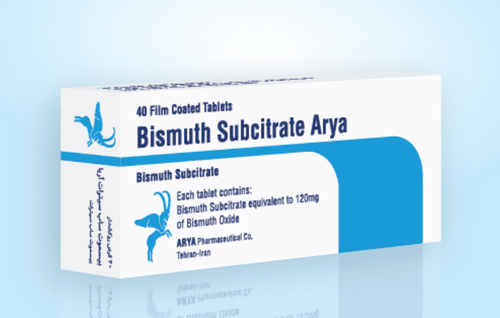
Bismuth thuốc điều trị đau dạ dày
4.3. Misoprostol Misoprostol is a group of drugs used to reduce the risk of stomach ulcers often in patients being treated with nonsteroidal anti-inflammatory drugs. However, with the advent of many new classes of stomach pain relievers listed above, the use of misoprostol has become less common than in the past.
5. Antibiotics to kill H. pylori
H. pylori is a causative agent of peptic ulcer disease. With special pathogenesis, this bacterium has the ability to survive in the acidic environment of the stomach and cause disease. Accordingly, the treatment of stomach pain will only be symptomatic treatment without the participation of groups of antibiotics to destroy H. pylori.
Antibiotics used in H. pylori eradication regimens must be combined with multiple groups such as clarithromycin (Biaxin) and amoxicillin (Amoxil, Augmentin) or metronidazole (Flagyl) to ensure the destruction of bacteria. You need to be sure to take the full antibiotic, adhere to the correct dose, usually for 14 days to reduce the possibility of recurrence and resistance.
In summary, stomach upsets can be controlled with the above classes of drugs when used correctly. Sometimes a combination of drug classes is necessary to ensure optimal treatment effect. At this time, you need to follow your doctor's instructions well, both to help relieve the discomfort quickly, and to limit the side effects of the drug.

Trước khi sử dụng thuốc, người bệnh cần tham khảo ý kiến của bác sĩ, dược sĩ
Please dial HOTLINE for more information or register for an appointment HERE. Download MyVinmec app to make appointments faster and to manage your bookings easily.
References: webmd.com, drugs.com, mayoclinic.org







